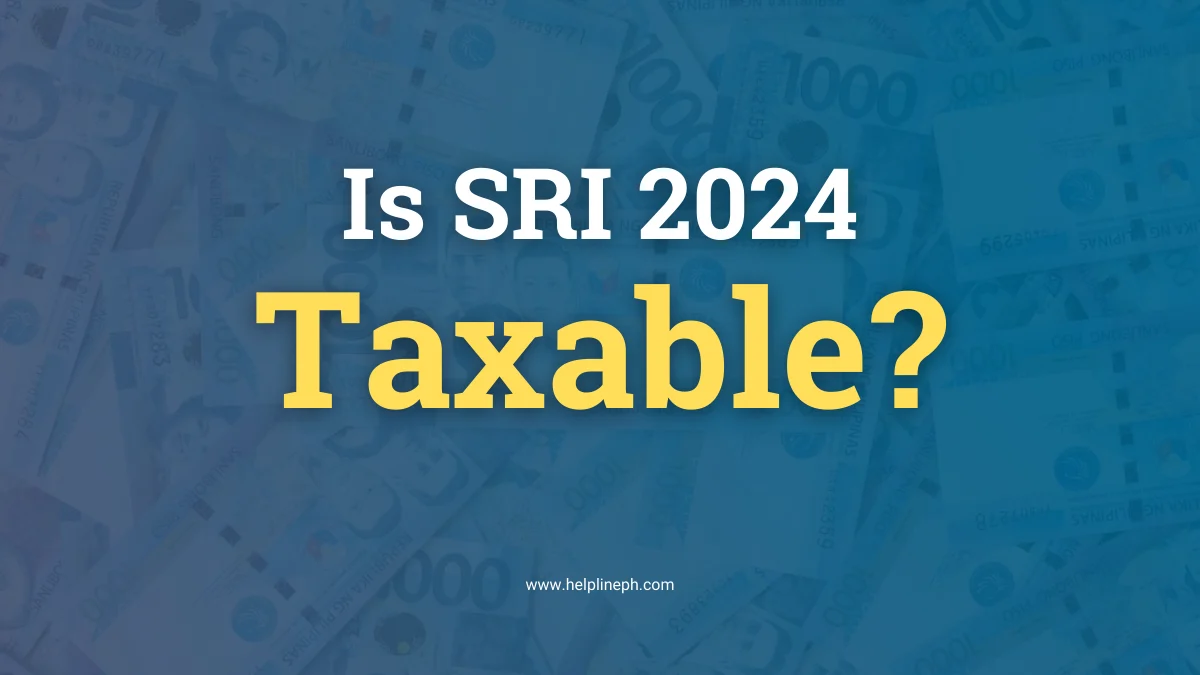The Service Recognition Incentive (SRI) for 2024 is a financial reward given to government employees in the Philippines to acknowledge their hard work and dedication. It’s a much-anticipated benefit every year, and many employees are curious about one key question: Is the SRI 2024 taxable? Let’s explain this in simple terms.
What is the SRI 2024?
The SRI is a one-time incentive for eligible government employees. For 2024, President Ferdinand R. Marcos Jr. authorized an SRI of ₱20,000 per employee through Administrative Order No. 27. This bonus is a way to appreciate the public servants’ contributions throughout the year.
When Will the SRI Be Released?
The SRI 2024 will start being released on December 20, 2024, according to official announcements. Agencies may have their specific timelines, but this date marks the earliest schedule for disbursement.
Who Can Receive the SRI?
The SRI is available to various government employees, such as those in:
- National Government Agencies (NGAs)
- State Universities and Colleges (SUCs)
- Government-Owned or -Controlled Corporations (GOCCs)
- Military and Uniformed Personnel
To qualify for the full amount, employees must meet these conditions:
- Be employed in government service as of November 30, 2024.
- Have completed at least four months of satisfactory service by November 30.
- Employees who served less than four months will receive a prorated amount.
Is the SRI 2024 Taxable?
Yes, the SRI 2024 is taxable, depending on the total benefits an employee receives throughout the year. Here’s why:
The ₱90,000 Tax-Exempt Rule
Under Philippine tax laws, bonuses and benefits (like the 13th-month pay, SRI, and performance bonuses) are tax-free up to ₱90,000 per year. Any amount beyond this limit is subject to income tax.
How It Works:
- If your total bonuses (including the SRI) do not exceed ₱90,000, the SRI will not be taxed.
- If your total bonuses go over ₱90,000, the excess amount will be taxed.
Examples of Tax Application
- Employee A:
- 13th Month Pay: ₱50,000
- SRI 2024: ₱20,000
- Total Benefits: ₱70,000 (below ₱90,000)
- Tax Status: No tax on the SRI.
- Employee B:
- 13th Month Pay: ₱80,000
- SRI 2024: ₱20,000
- Total Benefits: ₱100,000 (₱10,000 above the ₱90,000 threshold)
- Tax Status: ₱10,000 of the SRI is taxable.
Why Is the SRI Taxed?
The Bureau of Internal Revenue (BIR) enforces tax laws that apply to all bonuses and benefits. This ensures fairness and consistency for all employees. The ₱90,000 tax-free limit covers multiple bonuses, not just the SRI.
If your bonuses exceed ₱90,000, it doesn’t mean the entire amount is taxed—only the portion that goes beyond ₱90,000 is taxable.
What Should You Do?
- Check Your Total Bonuses:
Add up all bonuses and benefits (like your 13th-month pay and performance bonuses) to see if they exceed ₱90,000. - Ask Your HR Department:
HR can provide details about how much of your SRI might be taxable. - Plan Your Finances:
Knowing if your SRI will be taxed can help you prepare for any deductions.
FAQs
When will the SRI 2024 be released?
The SRI will start being distributed on December 20, 2024, as announced by the government.
What happens if I worked less than four months?
You will receive a prorated SRI based on the number of months you worked.
Will contractual employees get the SRI?
Yes, contractual and casual employees are eligible as long as they meet the government’s requirements.
Is the SRI taxable if I earned less than ₱90,000 in total bonuses?
No. If your total bonuses for the year are under ₱90,000, the SRI will not be taxed.
Final Thoughts
The SRI 2024 is a great reward for government employees, recognizing their dedication to public service. While taxes may apply if your bonuses exceed ₱90,000, many employees will likely enjoy the full ₱20,000 tax-free.
By staying informed about your benefits and taxes, you can make the most of this well-deserved incentive!






